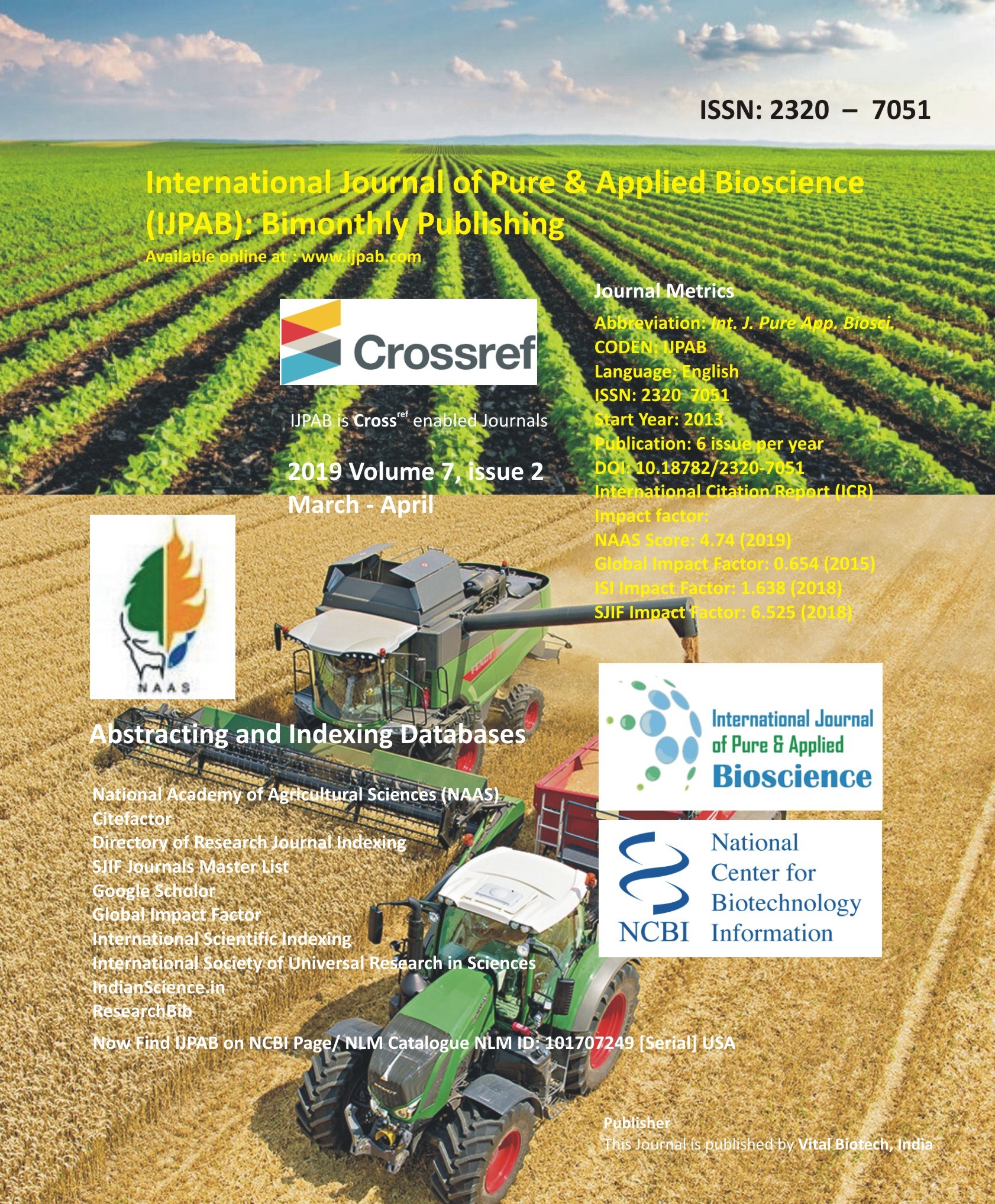
-
No. 772, Basant Vihar, Kota
Rajasthan-324009 India
-
Call Us On
+91 9784677044
-
Mail Us @
editor@ijpab.com
International Journal of Pure & Applied Bioscience (IJPAB)
Year : 2019, Volume : 7, Issue : 2
First page : (292) Last page : (302)
Article doi: : http://dx.doi.org/10.18782/2320-7051.7186
Biocontrol Management of Postharvest Penicillium Rot Disease of Khasi Mandarin (Citrus reticulata Blanco) Oranges Using Native B. subtilis in Meghalaya, India
Janshame Tariang*, D. Majumder and D. M. Firake
Department of Plant Pathology, School of Crop Protection, College of Post Graduate Studies, Central Agricultural University, Umiam - 793103, Meghalaya, India
*Corresponding Author E-mail: janshame@gmail.com
Received: 3.01.2019 | Revised: 6.02.2019 | Accepted: 13.02.2019
ABSTRACT
Khasi mandarin is an important horticulture crop in the North-Eastern (NE) states of India particularly Meghalaya. Losses of the fruit due to the post-harvest disease Penicillium rot caused by Penicillium sp. have been reported in the state. Efficacy of native B. subtilis isolates was studied to minimise the loss of Khasi mandarin fruit due to Penicillium rot. Four B. subtilis isolates COB5Y1, Bs 167, Bs 197 and Bs 217 identified for potential antagonistic properties against Penicillium sp. under in-vitro were obtained from Plant Pathology Laboratory, School of Crop Protection, Central Agricultural University, Meghalaya, India were evaluated for their efficacy against Penicillium rot disease of Khasi mandarin oranges in-vivo. Three stages of application under field condition were employed i.e. application of B. subtilis at pre-harvest stage, at pre-harvest + post-harvest stage and at post-harvest stage of the fruit. It was observed that application of B. subtilis was most effective when applied at post-harvest stage by immersion of the fruit 24 h prior to inoculation with fungal suspension, with a record of 78.75% disease inhibition by isolate Bs 167 and 75% disease inhibition by isolate COB5Y1 when stored for upto 30 days at room temperature in cartoon boxes. B. subtilis was found to have no adverse effect on the fruit quality i.e. weight of the fruit, total soluble solids and acidity of the fruit. Viability test of B. subtilis isolates showed that storage of B. subtilis pellet suspension at 4°C was the best with most number of viable bacterial colonies even after 180 days.
Key words: Native B. subtilis, Penicillium rot, Khasi mandarin, Meghalaya, In-vivo.
Full Text : PDF; Journal doi : http://dx.doi.org/10.18782
Cite this article: Tariang, J., Majumder, D. and Firake, D.M., Biocontrol Management of Postharvest Penicillium Rot Disease of Khasi Mandarin (Citrus reticulata Blanco) Oranges Using Native B. subtilis in Meghalaya, India, Int. J. Pure App. Biosci.7 (2): 292-302 (2019). doi: http://dx.doi.org/10.18782/2320-7051.7186

